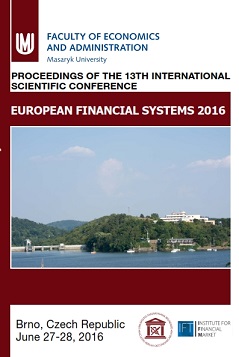High-Frequency Trading and Price Volatility in the Paris Euronext Stock Market
High-Frequency Trading and Price Volatility in the Paris Euronext Stock Market
Author(s): Juraj Hruška, Oleg Deev
Subject(s): Business Economy / Management, Methodology and research technology, Financial Markets, ICT Information and Communications Technologies
Published by: Masarykova univerzita nakladatelství
Keywords: volatility; high frequency trading; general method of moments; Markow switching model; GARCH;
Summary/Abstract: Algorithmic trading has become the crucial part of security trading on world equity markets influencing many of its characteristics. In this paper, we consider the effects of high frequency trading on the short term volatility. The aim of the paper is to analyze the relationship between high frequency trading (HFT) and spot volatility in high frequency as well as low frequency data from the French stock market. We employ GMM, GARCH and Markov switching models to estimate the relationship between changes in stock returns and changes in the activities of high frequency traders. We propose our own methodology to proxy changes in the activity of algorithmic traders. We also address the problem of optimal sampling to avoid possible biases in our empirical findings, since high frequency data contain a disruptive volatility component (market microstructure noise), by incorporating Bundi-Russell (2008) test and test of Lagrangian multipliers. Most actively traded stocks listed on the Paris stock exchange are chosen for the empirical analysis. Sampling tests suggest that optimal frequency should be approximately 60 minutes. Results from models confirm the hypotheses of positive impact of high-frequency trading on market volatility.
Book: European Financial systems 2016. Proceedings of the 13th International Scientific Conference
- Page Range: 249-255
- Page Count: 7
- Publication Year: 2016
- Language: English
- Content File-PDF

